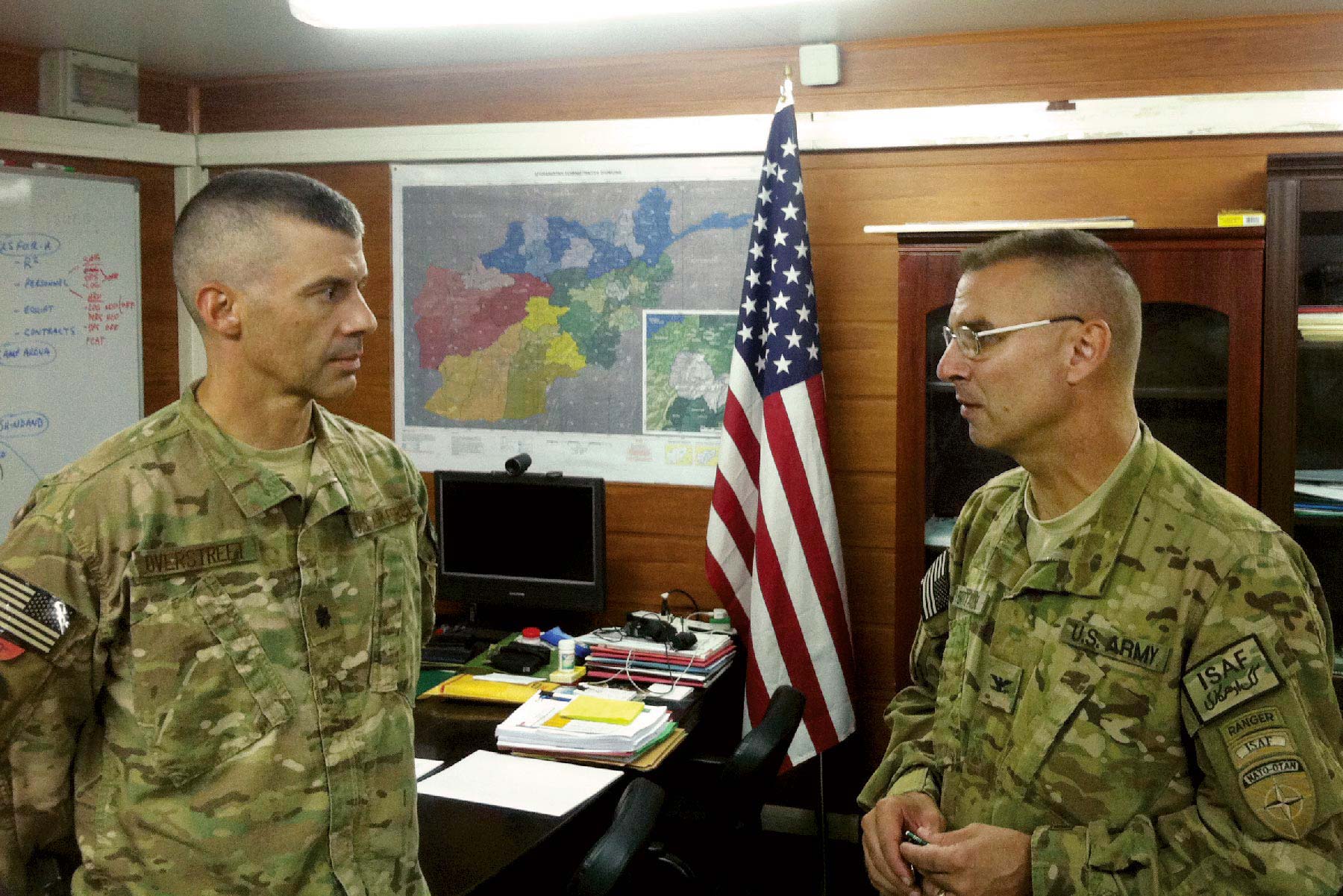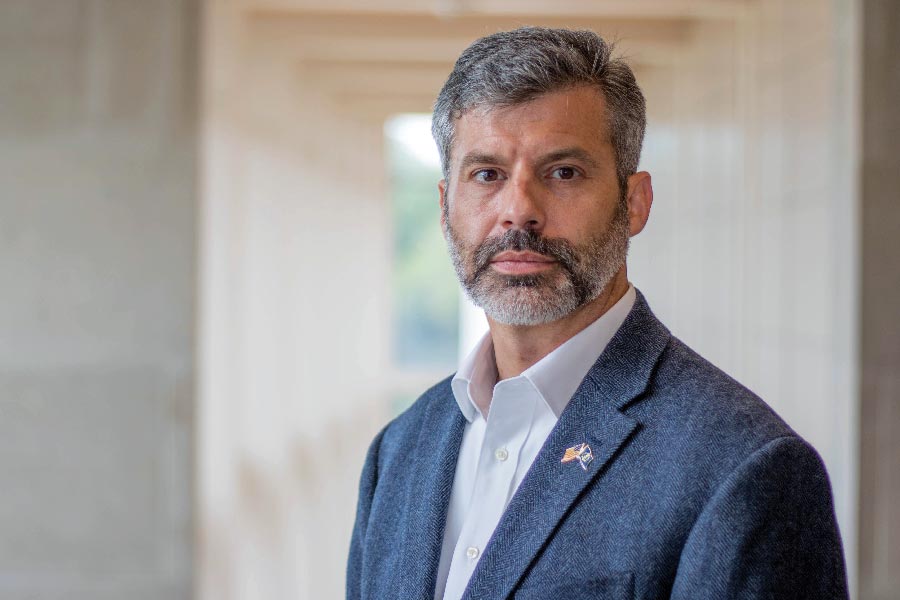
Faculty bring real-world experiences into the classroom
From the battlefield to the classroom
 Having served more than 27 years in the U.S. Air Force, it’s no surprise that Robert Overstreet runs a disciplined classroom.
Having served more than 27 years in the U.S. Air Force, it’s no surprise that Robert Overstreet runs a disciplined classroom.
He expects his students to show up for class, and, as for cell phones, please be professional and take them outside.
Overstreet, assistant professor of supply chain management, knows he can be tough, but that’s the price of admission when you have the opportunity to learn about supply chain management from someone with nearly three decades of experience supporting U.S. military operations all over the world.
He was assigned to be a medical supply technician after enlisting in the Air Force. Almost a decade later, he earned his bachelor’s degree and a commission as a logistics readiness officer and took on increasingly important supply chain responsibilities, including managing complex operations in Iraq and Afghanistan. He earned his master’s in logistics from the Air Force Institute of Technology (AFIT) and his PhD from Auburn University. He served as an assistant professor and military deputy department head of AFIT’s Department of Operational Sciences. Following his retirement in 2017, he joined the Ivy faculty.
“Experiences and lessons learned from 10 military assignments and deployments to Iraq and Afghanistan provide many real-world examples that help me teach important supply chain lessons,” he said. “More importantly, explaining on the first day of class that I was a farm kid, a first-generation college student, and sometimes a less-than-successful academic helps build a connection with my students.”
“The most important lesson that Professor Overstreet taught me is a quote that he
gave us our first day of class, “Shoot for perfection and settle for excellence.”
— Lia Chapman (’23 supply chain management)
His military adventures enliven lectures, but it’s a more personal story that provides a lesson he finds particularly important. While in Afghanistan, he had to discuss a list of complicated garrison issues with a very busy and distracted superior officer. The meeting was well into its third hour when Overstreet finally reached the last item – his wife had a serious health concern, and he may need to return home.
“My boss immediately gave me his undivided attention and spent almost an hour talking about health and the importance of family,” he said. “I learned that even in the toughest of situations, making sure your people know you’re there for them when needed is the most important thing a leader can do.”
January 26, 2024

